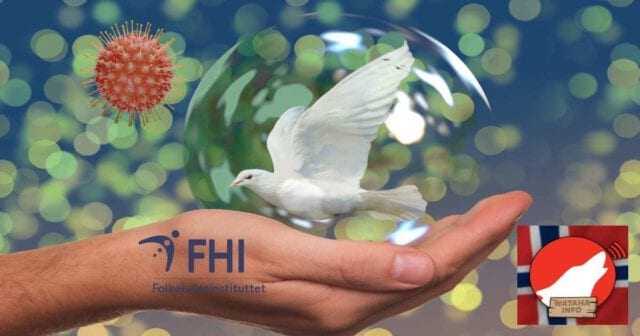Advice and policies for people who have been vaccinated or have had COVID-19
Immunization and a history of Covid-19 disease protect well, but offer no guarantee against contracting and contagiousness. Here we describe what it means to be protected and fully vaccinated, and what advice and principles apply to these groups.
Protection against Covid-19 after vaccination or infection
Although the coronavirus vaccine offers a high degree of protection against Covid-19 as early as 3 weeks after the first dose, two doses are needed for the best possible effect and duration. The vaccine also helps to reduce the spread of infection. We don't know for sure how long the protection will last. Protection has so far been shown to last for at least six months, but likely to last much longer - more will be known over time.
Likewise, we know that it is very rare for someone to get sick again in the first months after passing Covid-19. To obtain the best possible effect and duration of protection, those who have had an infection are advised to take a dose of the vaccine.
Nevertheless, neither the infection nor the vaccine can offer any guarantee against Covid-19 or the possibility of the infection spreading further. Therefore, vaccinated individuals must also follow infection control recommendations that apply at all times, and be tested if they develop symptoms that match covid-19. The few who become infected with COVID-19 despite being vaccinated or having a disease, are most likely to be mild or asymptomatic.
Who is considered fully vaccinated and protected, and what do we mean by risk group?
People considered to be "fully vaccinated" include:
- People who received the second dose of the vaccine. Fully vaccinated status is effective from 1 week after the second dose of vaccine.
- People who became ill and at least 3 weeks later received a dose of the vaccine. Fully vaccinated status takes effect from 1 week after vaccination.
- People who received the first dose of the vaccine followed by at least 3 weeks later were diagnosed with Covid-19 infection. Fully vaccinated status applies from the moment you are out of isolation.
If protection is reduced over time, the advice may change. This could lead to advice on a refresher vaccine.
. People considered "protected" have:
Fully vaccinated (see above).
People who received the first dose of the vaccine. Protected status lasts from 3 to 15 weeks after vaccination. This means that the second dose should be taken no later than 14 weeks after the first dose to maintain protection status until the patient is considered fully vaccinated.
Those who have been infected. Protected status is valid for 6 months after a positive test.
The vaccine definitions apply to people who have received vaccines approved by the European Medicines Agency (EMA). All vaccines administered in Norway are approved by the EMA.
The persons covered by the term "risk group" are:
65 years or older
People aged 18 years and over with certain diseases / conditions that increase the risk of serious illness and death from Covid-19 (medical risk groups).
. What is the advice at home?
In private homes and in a car, protected persons may have close social contact (less than 1 meter) with other protected persons, even if they are at risk.
Protected persons may have close social contact with unprotected persons who do not belong to the risk group.
Protected people should still maintain a sufficient distance (at least 1 meter) from unprotected people in a risk group with which they do not live.
Protected persons may be treated as members of your household and do not have to be counted as visitors. Unprotected guests must continue to stay away from other unprotected guests
If you live in a municipality that has rules on how many people can visit private homes, you must stick to them.
What advice and rules apply to people?
Protected people are no longer discouraged from unnecessary activities travel in Norway. But when traveling, we generally advise you to keep your distance and wear a face mask.
There are unchanging advice and rules among people (in public space, including public transport). This applies, for example, to advice and rules on distance, number, hygiene and the use of face masks.
What quarantine rules apply to people considered to be protected?
There are different types of quarantine:
Entry quarantine - after a stay abroad
Infectious - after close contact with a person infected with the crown
Pending quarantine - a temporary quarantine for people who live with someone who is in the infection quarantine. The test result for the quarantined person is negative or the test for the quarantined person is negative.
. Exceptions to quarantine for vaccinated people:
Infection quarantine:
Fully vaccinated people have infection quarantine exceptions that otherwise apply to close contacts of an infected person.
Those who are considered "protected" may also receive exceptions if they perform the PCR test between days 3 and 7.
Pending Quarantine:
Exceptions if a quarantined household member and / or a quarantined household member was vaccinated at least 3 weeks ago ("protected")
Entry quarantine:
Exceptions for foreign medical personnel during working hours, if absolutely necessary for critical social function (§ 6e, third paragraph), subject to a negative test upon arrival in Norway.



